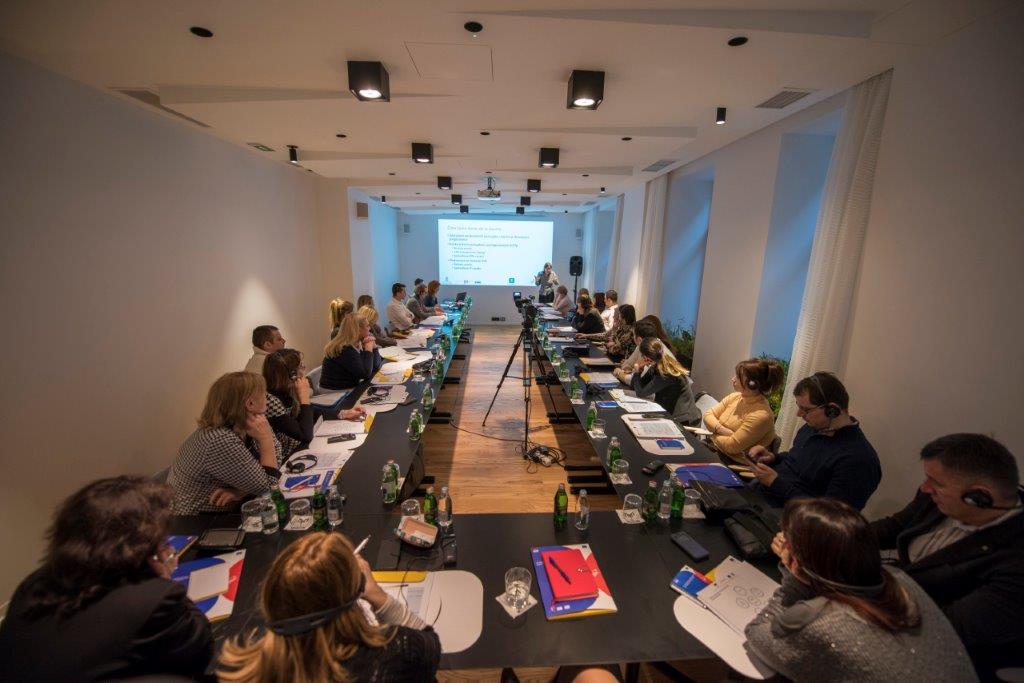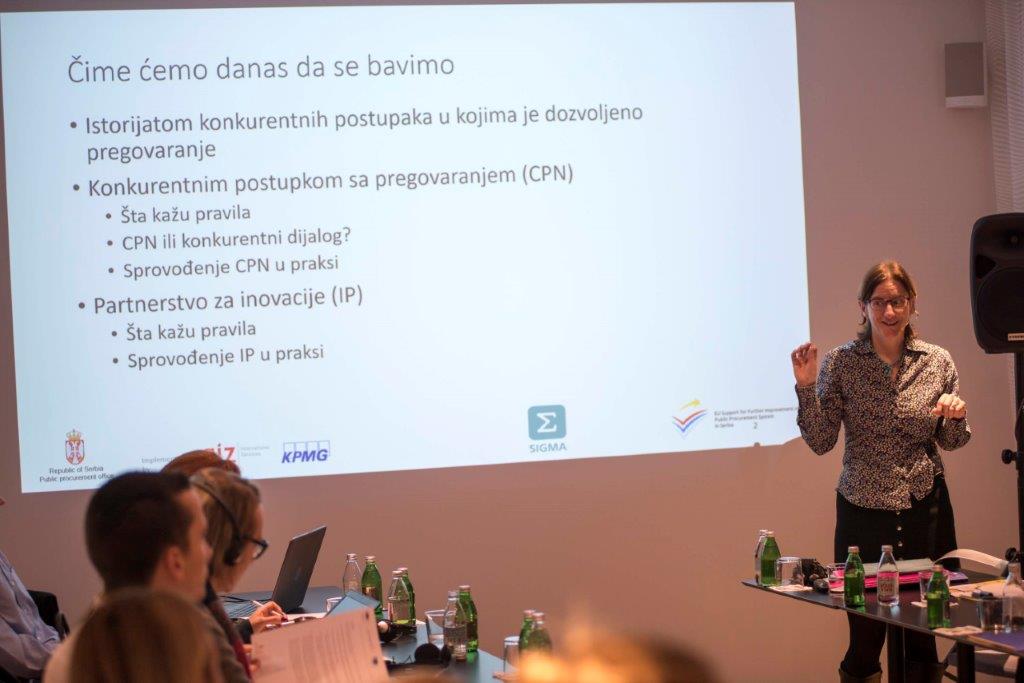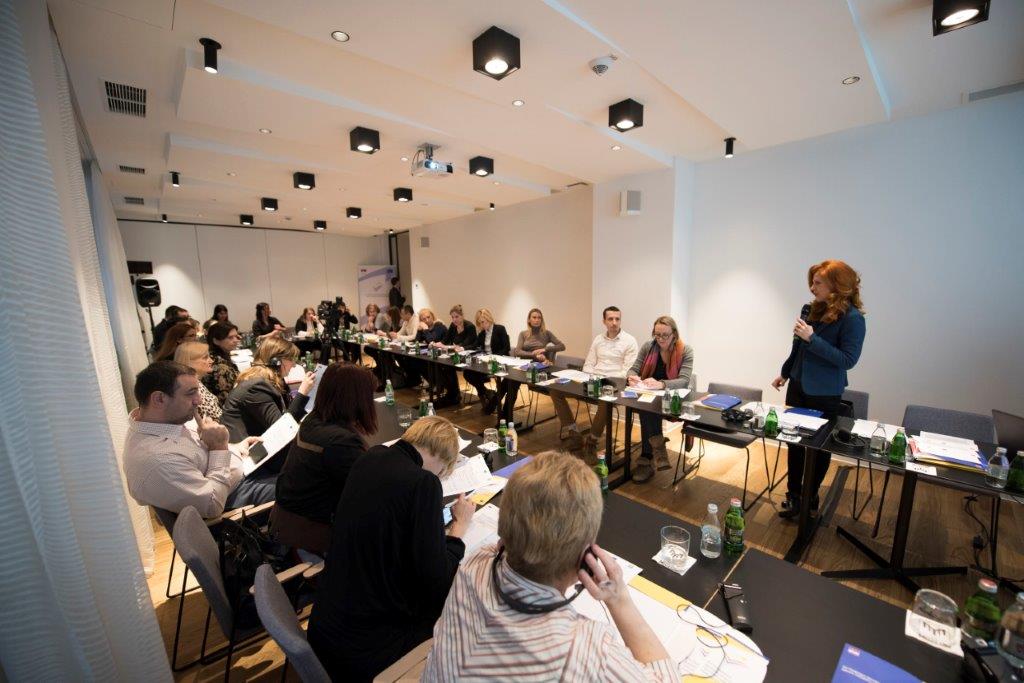
28 Jan Toward public procurement through dialogue, negotiations or innovation partnerships?
January 25
In cooperation with SIGMA, a joint OECD and EU initiative, the Project organized the workshop titled “Workshop on public procurement procedures with special emphasis on competitive procedure with negotiations and innovation partnerships.”
During the workshop, which was created as a combination of presentations and case studies, participants from the Procurement Office and other institutions, as well as the representatives of the Contracting Authority, had the opportunity to learn about the history of public procurement in the EU, current models, and the latest practices for implementing innovation partnerships.

Erika Bozzay, SIGMA representative, underscored that it was important to become familiar with the public procurement practices in the European Union, because of Serbia’s EU path, and also in light of the announced adoption of a new Public Procurement Law which will be harmonized with European regulations.
“Such a legal framework offers more transparency, opportunities for development and growth of society, and the participants of today’s workshop will be able to compare the competitive procedure with negotiations and dialogue, and adopt a new concept, “innovation partnerships.” To understand this complex process, two case studies will be of significant help, so that the participants can see how it all works in practice,” Erika Bozzay, SIGMA representative, said at the beginning.

Susie Smith, procurement expert, explained to participants that the European Union adopted a directive introducing a new concept, “innovation partnership”, in order to encourage innovations.
“Innovation partnership means the use of a new or significantly used product, service or process, including, among other things, production, construction or assembly processes, but also new organizational methods in business practices, job organization or external relations,” said Susie Smith, procurement expert.
Dariusz Piasta, Public procurement expert, IPA Project, underlined that the main goal of the new concept is to help resolve societal challenges and provide support to the Europe 2020 strategy for smart, sustainable and inclusive growth.
“Innovation partnerships model was used 56 times in 2017 in the EU, and mostly in Denmark, France and Netherlands”, said Piasta.
During the workshop, the participants also had the opportunity to see practical cases how this new procedure is being implemented and its effects.








